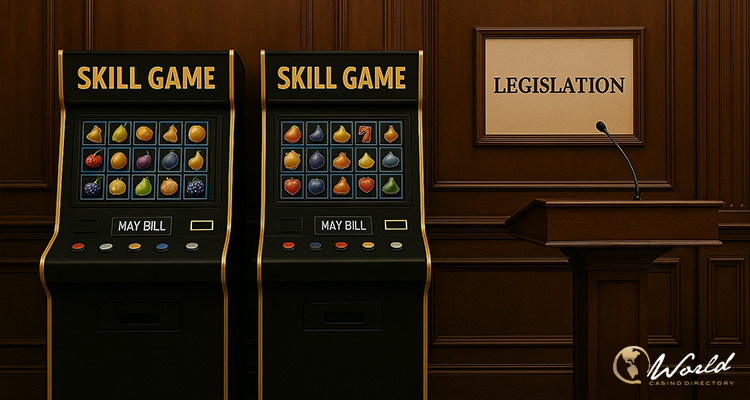Representative Kerry Benninghoff (R-Centre, Mifflin) has put forward House Bill 1619, a proposal that would formally regulate skill games throughout Pennsylvania. The legislation aims to establish a framework for licensing, operation, and oversight while notably excluding any new taxes on these devices, despite ongoing disputes about how best to handle their expanding presence across the state.
No new tax included, unlike competing proposals:
According to Benninghoff, skill games generate “substantial revenue” for businesses such as fraternal clubs, nonprofits, and small enterprises that depend on these machines to supplement income. “Businesses and establishments distributing, servicing, and operating skill games are subject to sales, personal income, and property taxes as well as other local taxes,” the bill reads.
What sets HB 1619 apart from other legislative efforts is its decision to exclude any special tax on skill game revenue. This contrasts sharply with Governor Josh Shapiro’s push for a 52% tax rate—on par with casino slot machines—and with proposals from other legislators suggesting rates of 35% or 16%.
As reported by WTAJ, Benninghoff’s bill specifies, “No additional taxes or fees, including amusement taxes, shall be imposed on the placement or operation of a skill game or on the revenue generated by a skill game terminal unless specifically authorized under this act.”
The bill calls for the Pennsylvania Department of Revenue to oversee licensing and enforcement. Under the proposal, licenses would be issued for 10 years at the following rates: $50,000 for distributors, $5,000 for operators, and $250 for establishments. Renewal fees would drop significantly, with distributors paying $25,000 and operators $1,000, while the establishment fee would remain unchanged.
Grandfather clause and operational limits proposed:
HB 1619 would also grandfather in all existing skill game machines in the Commonwealth. A registration deadline would be established for current operators, after which new limitations would take effect on the number of machines and the types of establishments permitted to host them. However, the bill leaves the exact details of these limits to be determined by the Department of Revenue.
“A program is established within the department to regulate the distribution, operation and use of skill games in this Commonwealth,” the legislation states. “The program shall be implemented and administered by the department.”
The measure is being introduced as lawmakers approach the June 30 deadline for finalizing the 2025–2026 state budget. Debate around skill games has intensified, with estimates of their financial impact ranging from $300 million to over $1 billion. Yet, precise figures are elusive, in part because the industry has not disclosed how many machines are in use.
Senate President Pro Tempore Kim Ward emphasized the urgency of passing legislation on skill games, stating, “We do very badly need to get a skills game bill passed.” But she also expressed frustration over the lack of transparency in the industry: “They won’t tell us how many machines are out there and there’s so many of them.”
Mike Barley, a representative of skill game manufacturer Pace-O-Matic, confirmed the company operates roughly 20,000 machines under the Pennsylvania Skill brand. However, he declined to reveal income figures, noting, “We have a lot of casinos trying to ask what that is every day.”
Barley also responded to criticisms of the industry’s influence, after Ward described skill game advocates as “bullying legislators” for opposing certain tax proposals. Barley refrained from addressing the accusation directly but defended his organization’s engagement with lawmakers, saying constituents are entitled to voice their concerns and lobby representatives.
Ward clarified that her concerns target for-profit manufacturers rather than nonprofit hosts. “Here are people running that would never pass a background check ever,” she said. “And it’s a lot of money. It’s not $100,000. It’s probably $1,000,000,000. It’s a lot of money. We need to fix it.”
With no immediate resolution in sight and the budget deadline fast approaching, skill games may continue to operate in a legal gray area under a Commonwealth Court ruling from December 2023, pending any formal regulatory action.


